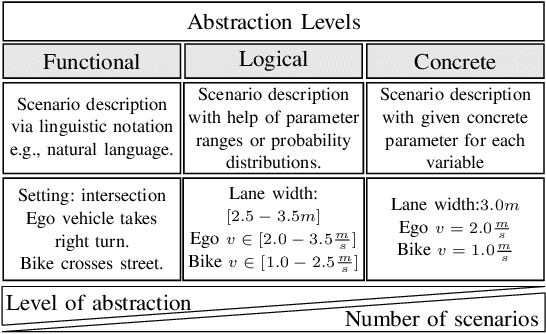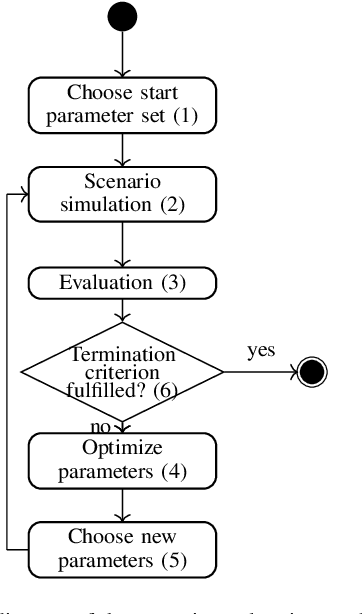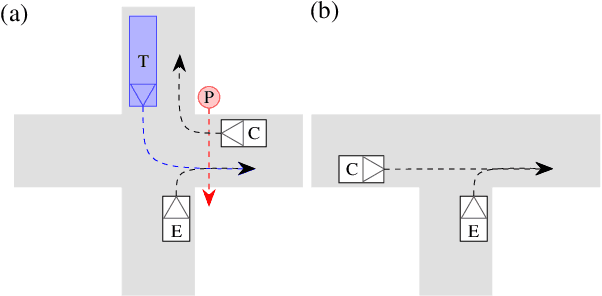Stefan Otten
Exploring the Range of Possible Outcomes by means of Logical Scenario Analysis and Reduction for Testing Automated Driving Systems
Jun 22, 2023



Abstract:With the implementation of the new EU regulation 2022/1426 regarding the type-approval of the automated driving system (ADS) of fully automated vehicles, scenario-based testing has gained significant importance in evaluating the performance and safety of advanced driver assistance systems and automated driving systems. However, the exploration and generation of concrete scenarios from a single logical scenario can often lead to a number of similar or redundant scenarios, which may not contribute to the testing goals. This paper focuses on the the goal to reduce the scenario set by clustering concrete scenarios from a single logical scenario. By employing clustering techniques, redundant and uninteresting scenarios can be identified and eliminated, resulting in a representative scenario set. This reduction allows for a more focused and efficient testing process, enabling the allocation of resources to the most relevant and critical scenarios. Furthermore, the identified clusters can provide valuable insights into the scenario space, revealing patterns and potential problems with the system's behavior.
 Add to Chrome
Add to Chrome Add to Firefox
Add to Firefox Add to Edge
Add to Edge